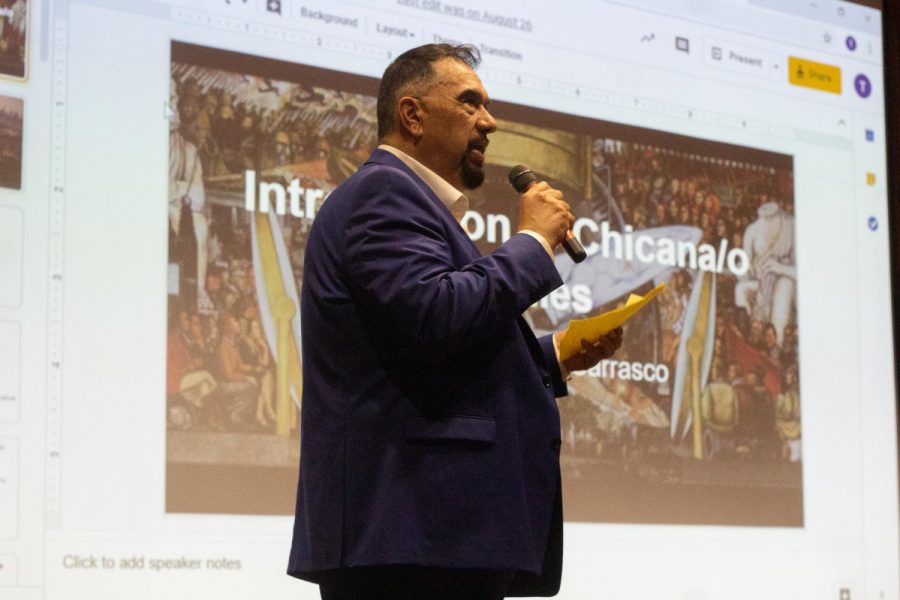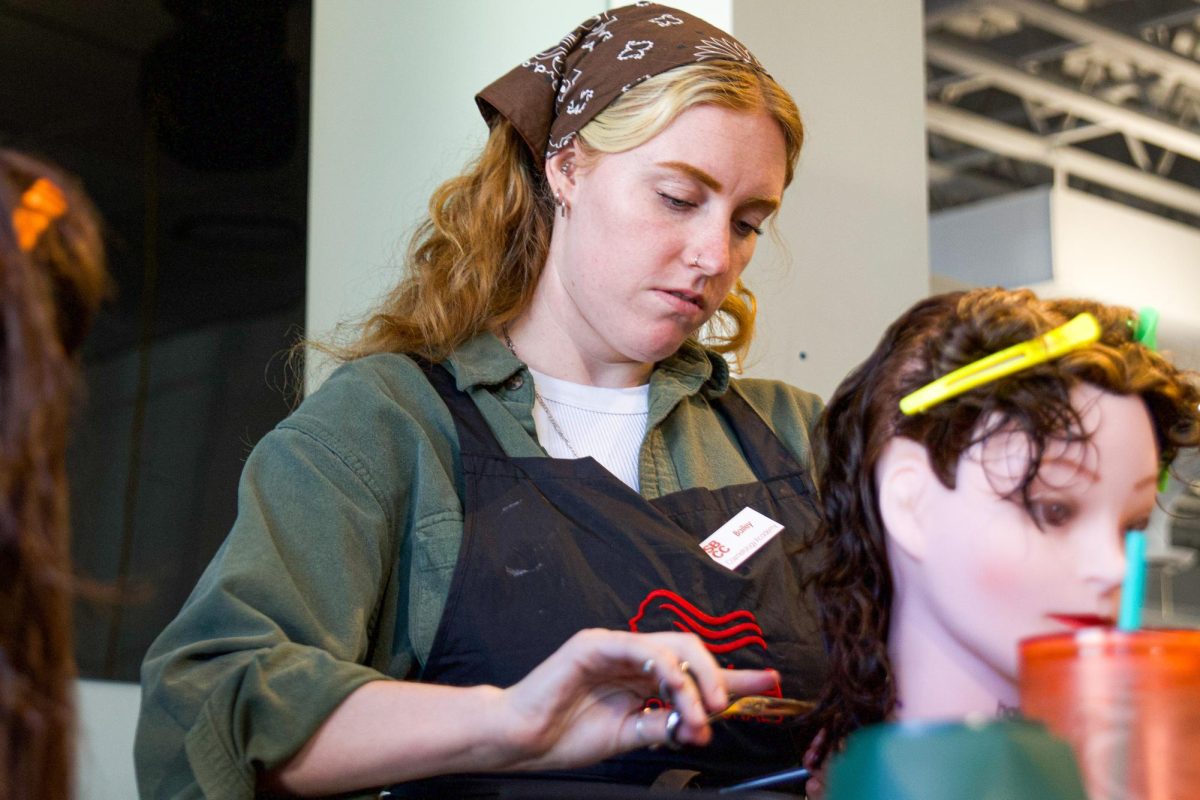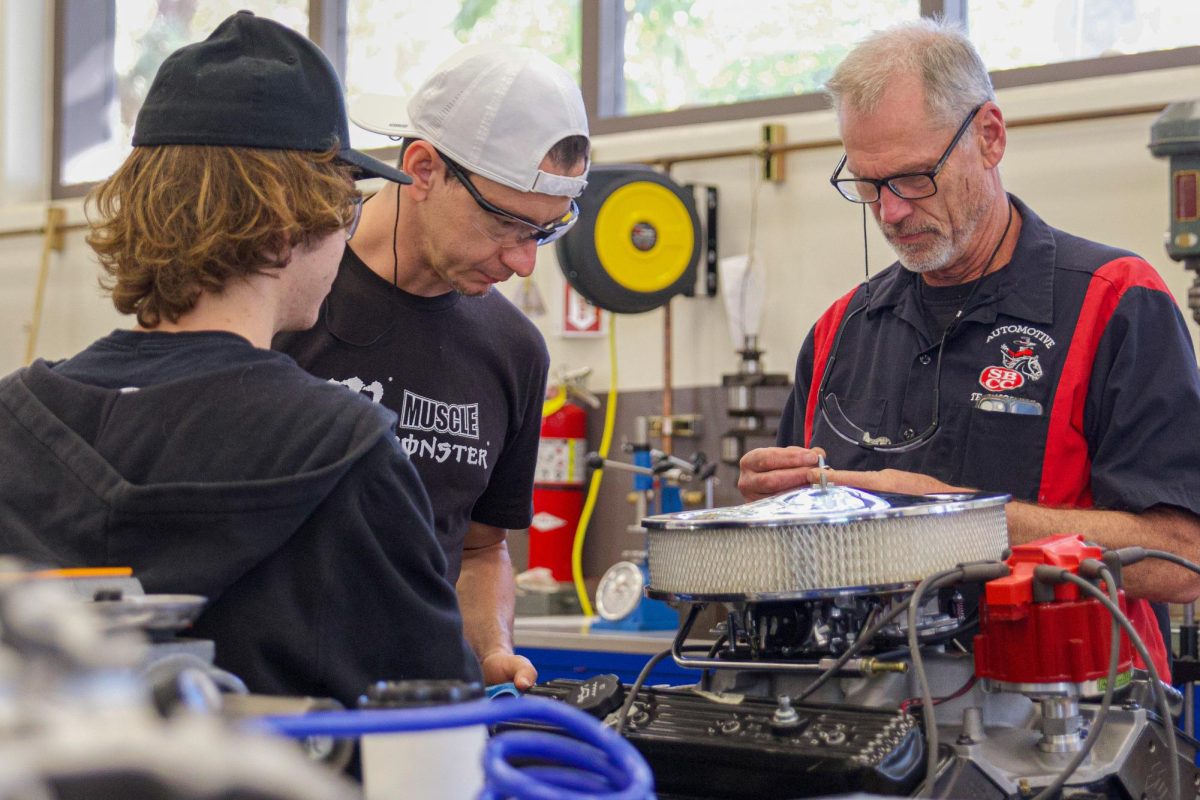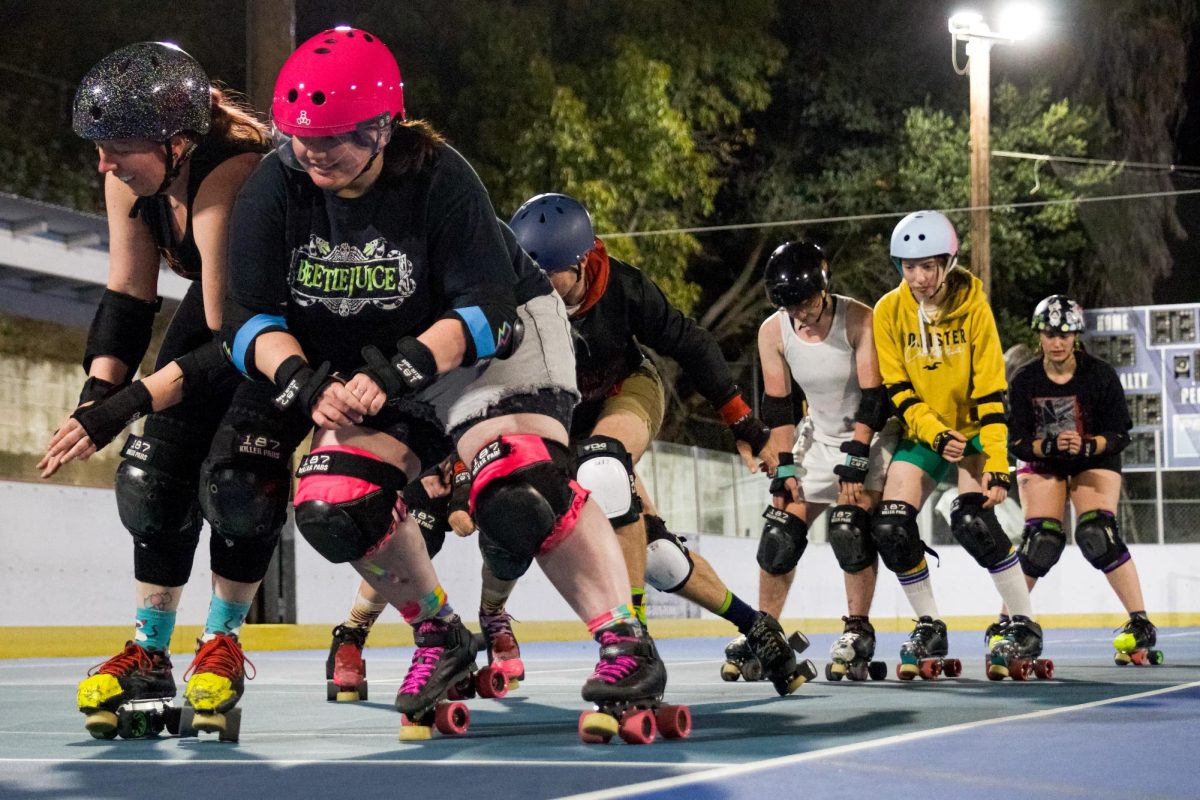Dozens of students and faculty members listened closely as speakers from various colleges discussed Chicano studies at the second event of the “Courageous Conversations for Outrageous Times” series Saturday morning in the Business-Communications Center Forum.
In celebration of Hispanic Heritage Month, the 2019: Chican@ Time Conference, “500 Years of Tenochtitlan and 50 Years of Chicana/o Studies” hosted a number of professors and department chairs from colleges such as California State University, Northridge and San Jose State University, who talked about their experiences growing up as Chicano and their institutions’ Chicano studies departments.
“I really wanted to focus in on ethnic studies, Chicano studies, on our students,” said Thomas A. Carrasco, event curator and ethnic studies department chair at City College.
The event started with a land acknowledgment from student Isa Saldivar, who could be seen burning sage in a wild abalone shell before the event and during the lunch break.
“Especially when we talk about Chicano history, it’s important to acknowledge the [Chumash] land we’re on,” Saldivar said. “It’s a topic that people think ‘it doesn’t apply to me so I don’t need to know it,’ but it’s history. Unless we learn from history, we’re not going to go anywhere.”
A theme that was repeated throughout the event by Carrasco was that “we are ancient and simultaneously modern.”
One of the speakers, Elias Serna, a professor teaching Chicana/o and Latino studies at California State University, Dominguez Hills, talked about the history of the Mesoamerican people and how this year is the quincentennial of the Spaniards arriving in Tenochtitlan, the capital of the Aztec empire.
“This is not my area of specialization,” Serna said about Mesoamerican history. “It’s an area of passion because of the time we’re in.”
Serna talked about the indigenous people and their history as Chicanos are “profoundly Indian.”
“We are not savages, we have this enormous civilization and technology,” Serna said. “[Chicanos] have been de-Indianized.”
Other speakers in the conference talked about their relationship with education growing up as Chicanos.
Jonathan Gomez, assistant professor of Chicana and Chicano studies at San Jose State, talked about just being pushed along through high school but wanting to do more for his family who had sacrificed so much for him.
“I haven’t given everything that my family’s given to me,” Gomez said. “I decided to give education another shot.”
Gomez then went to East Los Angeles College where he received help and support from the college’s Extend Opportunity Program and Services.
“I had someone to teach me how to systematically study,” Gomez said. “That was the first time in my formal education where an educator made the time for me to sit down and show me how to study.”
Gomez talked about how important his education at East Los Angeles College and the University of California, Santa Cruz was and how it became a “tool to fight back.”
“Education, for me, was able to mend a bridge that history of hurt and modernization had created social breakdowns,” Gomez said.
The “Courageous Conversation for Outrageous Times” series is opening the conversation of Chicano studies and other issues that City College students face in today’s world.
“We’re living in some crazy times,” Carrasco said.
Hispanic and Latinx Heritage Month continues through October 15.














